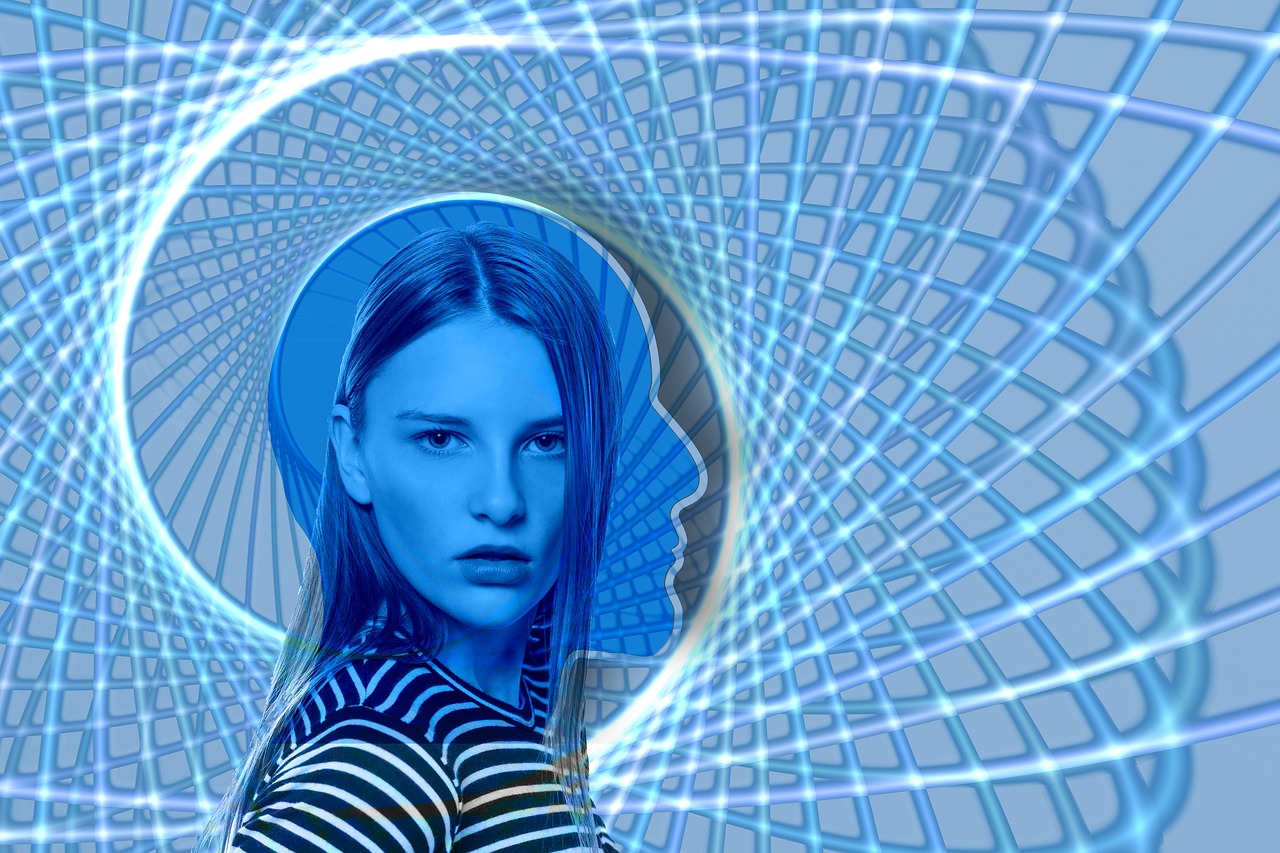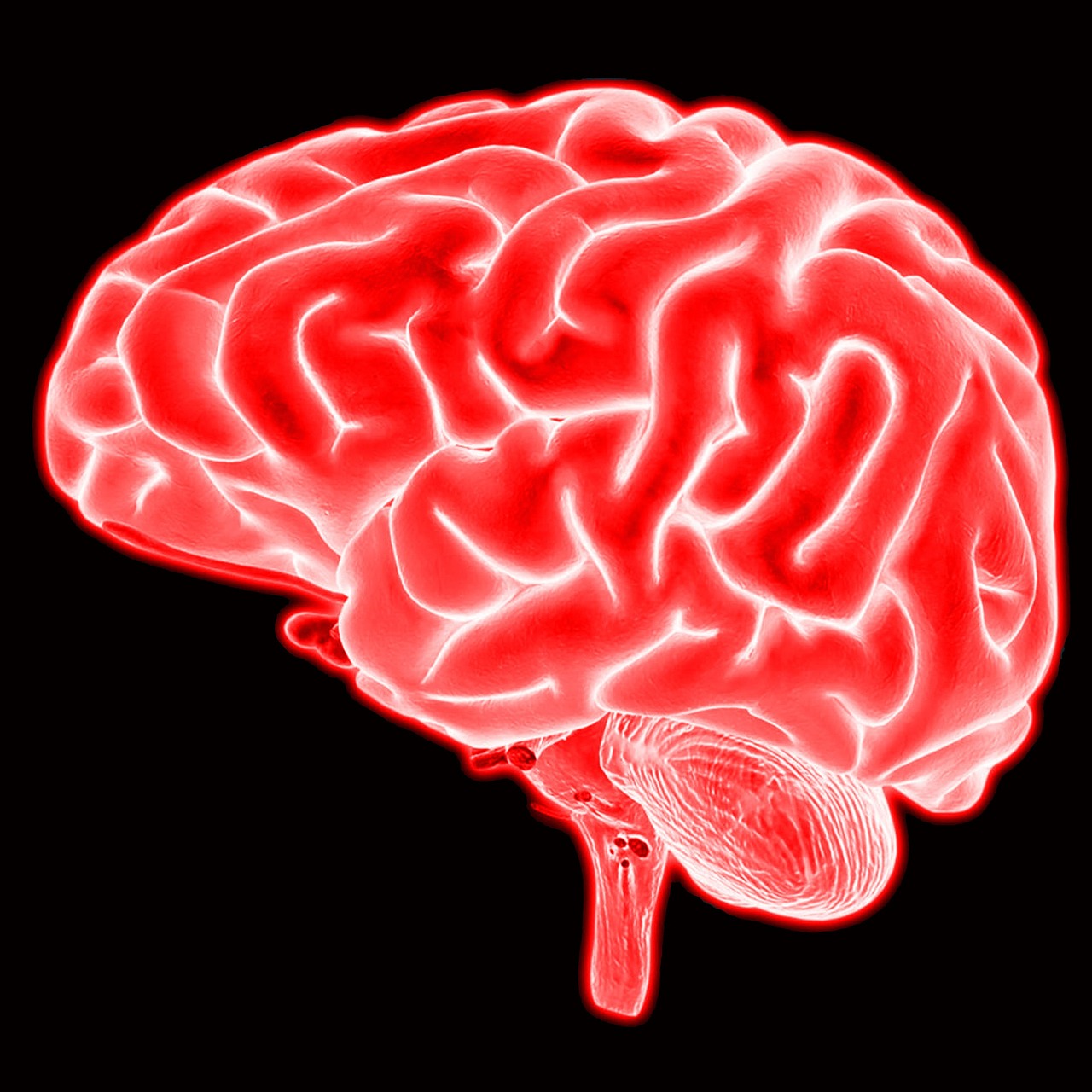On the Frontier of Philosophy of Mind
The philosophy of mind is like a vast ocean, teeming with questions and theories that dive deep into the very essence of consciousness, cognition, and our understanding of what it means to be "alive." As we embark on this intellectual journey, we find ourselves at the intersection of age-old philosophical debates and cutting-edge scientific discoveries. How do we define consciousness? What is the relationship between our minds and bodies? And can machines ever truly think or feel? These questions are not just theoretical musings; they are crucial to our understanding of ourselves and the world around us.
In recent years, the philosophy of mind has gained renewed interest, particularly as advancements in artificial intelligence (AI) and neuroscience challenge traditional views. The rise of AI prompts us to reconsider our definitions of thought and consciousness. Are we merely sophisticated biological machines, or is there something uniquely human that cannot be replicated? This exploration is not just about understanding the mind; it also touches on ethics, identity, and the very fabric of reality itself.
As we delve into contemporary issues and debates, we will explore a variety of perspectives, from dualism to functionalism, and examine how these theories address the complexities of mental states. We will also confront the "problem of other minds," which questions how we can know the existence of consciousness in others, and consider the implications of our findings for empathy and social interaction. With each theory, we inch closer to unraveling the mysteries of the mind, yet with every answer, new questions emerge, creating a dynamic landscape of philosophical inquiry.
Join us as we navigate through the intricacies of the philosophy of mind, where every thought is a stepping stone toward greater understanding. Whether you're a seasoned philosopher or a curious beginner, this exploration promises to challenge your perceptions and ignite your imagination.
- What is the philosophy of mind? - The philosophy of mind is a branch of philosophy that studies the nature of the mind, consciousness, and their relationship to the physical body.
- What are the main theories in the philosophy of mind? - Key theories include dualism, functionalism, physicalism, and panpsychism, each offering different perspectives on the mind-body relationship.
- Can machines possess consciousness? - This is a hotly debated topic; some argue that machines can simulate consciousness, while others believe true consciousness requires biological processes.
- How does neuroscience impact philosophy of mind? - Neuroscience provides empirical evidence that can support or challenge philosophical theories, leading to a reevaluation of traditional concepts of the mind.

The Nature of Consciousness
When we dive into the mysterious waters of consciousness, we find ourselves grappling with questions that have perplexed thinkers for centuries. What does it mean to be conscious? How do our subjective experiences arise, and what implications do they hold for our understanding of the mind? These queries are not just philosophical musings; they are fundamental to our grasp of reality itself. Consciousness is often described as the state of being aware of and able to think about one's own existence, thoughts, and surroundings. Yet, the nature of this awareness remains elusive and complex.
One of the most intriguing aspects of consciousness is its subjectivity. Each person's experience of the world is colored by their unique perceptions, emotions, and thoughts. Imagine standing in a crowded room, surrounded by laughter and chatter. While you may hear the same sounds as everyone else, your interpretation of those sounds—your feelings about them, your memories triggered by them—are distinctively yours. This individuality raises significant questions about the qualia of experience, the intrinsic qualities that make up our perceptions. How can we truly understand another person’s consciousness if we can only access our own?
Philosophers have proposed various theories to explain the nature of consciousness. Some argue for a biological basis, suggesting that consciousness emerges from complex neural processes in the brain. Others take a more abstract approach, positing that consciousness is a fundamental aspect of the universe, akin to space or time. This leads us to the intriguing idea of panpsychism, which suggests that consciousness might be a property of all matter, not just biological entities. It’s as if consciousness is woven into the very fabric of existence, waiting to be acknowledged.
To better understand these theories, let’s look at some of the major perspectives:
- Biological Naturalism: This view holds that consciousness arises from physical processes in the brain, emphasizing the importance of neuroscience in uncovering the mysteries of mental states.
- Dual Aspect Theory: This theory posits that mental and physical states are two sides of the same coin, suggesting a close relationship between brain activity and conscious experience.
- Integrated Information Theory (IIT): IIT proposes that consciousness corresponds to the level of information integration in a system, providing a mathematical framework for understanding consciousness.
Each of these theories attempts to unravel the intricate tapestry of consciousness, yet none have fully captured its essence. The challenge lies in bridging the gap between our subjective experiences and objective measurements. As we continue to explore these questions, we must also consider the implications of consciousness in the realm of artificial intelligence. If we can create machines that mimic human behavior, will they also possess consciousness? Or will they remain mere reflections of our own minds, devoid of true awareness?
In conclusion, the nature of consciousness is a profound enigma that invites us to explore not only the workings of our own minds but also the broader implications for society, ethics, and our understanding of existence. As we navigate this philosophical frontier, we are challenged to reconsider what it means to be conscious and how this awareness shapes our interactions with the world around us.

Mind-Body Dualism
Mind-body dualism is a fascinating philosophical perspective that suggests a distinct separation between the mind and the body. This idea, which has captivated thinkers for centuries, raises profound questions about the nature of consciousness, identity, and existence itself. Imagine your mind as a vibrant, swirling galaxy filled with thoughts, emotions, and experiences, while your body is like a sturdy spaceship, navigating the physical universe. How do these two entities interact, and what does it mean for our understanding of what it means to be human?
Historically, dualism has roots that stretch back to ancient philosophy, but it was the French philosopher René Descartes who famously articulated this view in the 17th century. Descartes posited that the mind, a non-physical entity, could exist independently of the body. This radical notion challenged the prevailing materialistic views of his time and set the stage for centuries of debate. Dualism presents a compelling argument: if we can conceive of our thoughts separately from our physical bodies, does that not imply a deeper, more complex relationship between the two?
However, this perspective is not without its critics. Opponents argue that dualism fails to account for the intricate ways in which mental states are influenced by physical processes. For instance, consider how emotions can manifest as physical sensations—like a racing heart when you're anxious. This interplay raises questions about whether the mind can truly be separate from the body. Critics of dualism, such as proponents of physicalism, contend that all mental phenomena are fundamentally rooted in physical processes within the brain.
Despite these critiques, the dualist perspective continues to inspire contemporary thinkers. Today, many philosophers are reexamining the mind-body relationship through new lenses, including advancements in neuroscience and psychology. They ask: Can the mind exist independently, or is it inextricably linked to our physical being? This ongoing discourse highlights the complexity of our understanding of consciousness and the human experience.
To truly appreciate the significance of mind-body dualism, we must delve into its historical context. The roots of this debate can be traced back to ancient philosophers like Plato and Aristotle, who pondered the nature of the soul and its relationship to the body. However, it was Descartes who provided a systematic argument for dualism, famously declaring, "Cogito, ergo sum" (I think, therefore I am). This assertion laid the groundwork for a philosophical framework that distinguished between the mental and the physical.
Descartes' contributions to dualism cannot be overstated. He argued that the mind is a thinking substance, while the body is an extended substance. This distinction led to the famous Cartesian dualism, which posits that the mind and body interact but are fundamentally different in nature. Descartes proposed the concept of the pineal gland as the point of interaction between the two, a notion that, while scientifically inaccurate, sparked further inquiry into the mind-body connection.
Despite its historical significance, dualism faces several critiques. One major challenge comes from the field of neuroscience, which has made significant strides in understanding the brain's role in shaping our mental experiences. Critics argue that dualism's separation of mind and body overlooks the evidence that mental states can be altered through physical changes in the brain. For instance, consider how a stroke can affect personality or cognitive function—this suggests a more integrated relationship than dualism proposes.
In the modern philosophical landscape, dualism continues to be a topic of rich debate. Contemporary philosophers are exploring various interpretations of the mind-body relationship, often influenced by advancements in technology and neuroscience. Some propose a more nuanced view, suggesting that while the mind and body are distinct, they are also deeply interconnected. This perspective invites us to reconsider our understanding of consciousness and the essence of what it means to be human.
In conclusion, mind-body dualism remains a compelling and complex topic within the philosophy of mind. As we navigate the intricacies of consciousness, cognition, and the impact of emerging technologies, the questions raised by dualism will undoubtedly continue to challenge and inspire future generations of thinkers.
- What is mind-body dualism? Mind-body dualism is the philosophical view that the mind and body are distinct entities that interact with one another.
- Who is the key figure associated with dualism? René Descartes is the philosopher most commonly associated with the articulation of mind-body dualism.
- What are the main critiques of dualism? Critics argue that dualism fails to account for the physical basis of mental states, as evidenced by findings in neuroscience.
- How does contemporary philosophy view dualism? Many contemporary philosophers are reexamining dualism in light of new scientific discoveries, often proposing a more integrated understanding of the mind and body.

Historical Context
The concept of mind-body dualism has a rich and complex history that stretches back to ancient philosophical inquiries. At its core, dualism suggests that the mind and body are fundamentally distinct entities. This idea has sparked countless debates and discussions throughout the ages, influencing not only philosophy but also psychology, neuroscience, and even theology. To truly appreciate the development of dualism, we must look back at the key figures and their contributions that have shaped this enduring discourse.
One of the earliest proponents of a dualistic perspective was Plato, who posited a separation between the physical realm and the realm of forms, suggesting that the soul (or mind) exists independently of the body. His ideas laid the groundwork for future thinkers who would grapple with the mind-body connection. However, it was the work of René Descartes in the 17th century that brought dualism to the forefront of philosophical thought. Descartes famously declared, "Cogito, ergo sum," or "I think, therefore I am," emphasizing the primacy of the mind as a distinct and separate entity from the body.
Descartes argued that the mind is immaterial and non-extended, while the body is material and extended in space. This radical separation posed significant questions about how these two distinct substances interact, leading to what is now known as the mind-body problem. Descartes proposed that the pineal gland served as the point of interaction between the two, a notion that has since been challenged and debated extensively.
Following Descartes, philosophers such as Thomas Hobbes and John Locke introduced alternative views that began to challenge the strict dualism of their predecessor. Hobbes, for instance, was a staunch materialist, arguing that everything, including thoughts and emotions, could be explained through physical processes. Locke, on the other hand, contributed to the debate by emphasizing the role of experience and perception in shaping the mind, thus integrating aspects of both materialism and dualism.
Throughout the 19th and 20th centuries, dualism faced increasing scrutiny from various philosophical movements. The rise of physicalism and behaviorism challenged the dualist perspective by asserting that mental states are reducible to physical states or observable behavior. This shift in thinking led to a more scientific approach to understanding the mind, prompting philosophers to reconsider the implications of dualism in light of emerging psychological and neuroscientific discoveries.
Today, the historical context of mind-body dualism remains a vital area of exploration. Contemporary philosophers are revisiting these age-old questions with fresh perspectives, often blending insights from neuroscience, cognitive science, and artificial intelligence. The dialogue continues as we seek to understand not just the nature of consciousness, but also the intricate relationship between the mind and body in our quest for knowledge.
- What is mind-body dualism? Mind-body dualism is the philosophical view that the mind and body are two distinct entities that interact with each other.
- Who first proposed dualism? The concept of dualism was notably advanced by René Descartes in the 17th century.
- How does dualism differ from physicalism? Dualism posits that the mind is a non-physical entity, while physicalism asserts that everything, including mental states, can be explained by physical processes.
- What are the implications of dualism for understanding consciousness? Dualism raises important questions about how subjective experiences arise and how they relate to physical states, impacting fields such as psychology and neuroscience.

René Descartes' Contributions
René Descartes, often hailed as the father of modern philosophy, made significant contributions to the philosophy of mind that continue to resonate today. His assertion, "Cogito, ergo sum" (I think, therefore I am), encapsulates his belief in the primacy of thought as the foundation of existence. Descartes proposed that the mind is a distinct entity, separate from the body, which laid the groundwork for mind-body dualism. This perspective suggests that mental phenomena are non-physical and cannot be fully explained by physical processes. In essence, Descartes argued that while the body is subject to the laws of nature, the mind exists in a realm beyond physicality, leading to a profound discussion about the nature of consciousness.
One of Descartes' pivotal contributions is his method of systematic doubt, which encourages questioning all beliefs until only indubitable truths remain. This method not only influenced philosophical inquiry but also emphasized the importance of rational thought in understanding the mind. By doubting everything, Descartes sought to establish a firm foundation for knowledge, ultimately arriving at the conclusion that the act of thinking itself is proof of existence. This radical approach challenged the prevailing notions of the time and opened avenues for future philosophical exploration.
Moreover, Descartes introduced the concept of interactionism, which posits that the mind and body interact with one another, influencing each other's states. This idea is exemplified in his famous pineal gland theory, where he suggested that this small gland in the brain is the point of interaction between the immaterial mind and the physical body. Although modern science has not supported this specific claim, the notion that mental states can affect physical states (and vice versa) remains a topic of interest in both philosophy and neuroscience.
Descartes' influence extends beyond his immediate contributions; he has inspired countless philosophers and scientists to explore the relationship between mind and body. His works, such as Meditations on First Philosophy and Principles of Philosophy, continue to be studied for their insights into human cognition and consciousness. By framing the discussion around the dualistic nature of existence, Descartes set the stage for future debates in philosophy and cognitive science, prompting questions that remain relevant today.
In summary, Descartes' contributions to the philosophy of mind have been monumental. His exploration of the mind-body relationship, the emphasis on rational thought, and the introduction of interactionism have shaped philosophical discourse for centuries. As we continue to grapple with questions about consciousness and the nature of existence, Descartes' legacy endures, reminding us of the intricate dance between the mind and the body.
- What is mind-body dualism? Mind-body dualism is the philosophical view that the mind and body are two distinct entities that interact with each other.
- How did Descartes influence modern philosophy? Descartes' method of systematic doubt and his emphasis on rational thought laid the groundwork for modern philosophical inquiry.
- What is the significance of "Cogito, ergo sum"? This phrase encapsulates Descartes' belief that the act of thinking is the foundation of existence, emphasizing the importance of consciousness.
- What are some critiques of Descartes' theories? Critics argue that dualism fails to explain how the mind and body interact and that physicalism offers a more coherent understanding of mental states.

Critiques of Dualism
While mind-body dualism has historically played a significant role in shaping philosophical discourse, it has also faced substantial critiques that challenge its validity. One of the most prominent criticisms comes from the perspective of physicalism, which argues that everything about the mind can be explained through physical processes. Advocates of physicalism assert that mental states are not separate entities but rather arise from complex interactions within the brain's neural networks. This view posits that consciousness and mental experiences are fundamentally tied to the brain's physical state, raising questions about the necessity of a dualistic framework.
Another significant critique involves the interaction problem. Dualists often claim that the mind and body interact, but critics argue that this interaction is difficult to explain. How can an immaterial mind influence a material body? This question leads to a paradox that challenges the coherence of dualism. If the mind is non-physical, how does it exert influence over physical processes, such as movement or speech? This dilemma suggests that dualism may not adequately account for the observable interactions between mental and physical states.
Furthermore, advancements in neuroscience have provided compelling evidence against dualism. Studies show that specific brain regions correlate with particular mental activities, suggesting that mental states are deeply rooted in physical brain processes. For instance, when someone experiences a particular emotion, corresponding neural pathways become activated. Such findings imply that consciousness is not an independent entity but rather a product of brain activity. The growing understanding of the brain's complexity raises doubts about the necessity of positing a separate realm for the mind.
Moreover, dualism has been critiqued for its inability to provide a clear explanation of certain phenomena, such as mental causation. If the mind and body are distinct, how do thoughts lead to physical actions? Critics argue that dualism struggles to articulate how non-physical thoughts can result in tangible outcomes in the physical world. This gap can lead to a lack of explanatory power, making dualism less appealing in the face of more empirically grounded theories.
In addition to these critiques, there is a growing sentiment among contemporary philosophers that dualism may promote a false dichotomy between the mind and body. This perspective encourages an integrated view of human experience, where mental and physical processes are seen as interconnected rather than separate. By embracing a more holistic approach, philosophers can better address the complexities of consciousness and cognition without resorting to a dualistic framework.
In summary, while dualism has played a foundational role in the philosophy of mind, its critiques highlight significant challenges that must be addressed. From the interaction problem to the insights provided by neuroscience, these critiques encourage a reevaluation of how we understand the mind-body relationship. As we continue to explore these philosophical debates, it becomes increasingly clear that a more integrated perspective may offer a better understanding of the intricate nature of consciousness.
- What is mind-body dualism?
Mind-body dualism is the philosophical view that the mind and body are distinct entities that interact with each other. - What are the main critiques of dualism?
Critiques include the interaction problem, challenges from physicalism, and the implications of neuroscientific discoveries. - How does neuroscience challenge dualism?
Neuroscience shows that mental states correlate with physical brain processes, suggesting that consciousness is rooted in the brain's activity. - What is the alternative to dualism?
Physicalism and functionalism are alternatives that argue mental states can be explained through physical processes or their functional roles.

Contemporary Perspectives
The philosophy of mind has evolved significantly over the years, particularly as contemporary thinkers grapple with the complexities of consciousness and cognition. Today, many philosophers are reexamining traditional views, seeking to integrate insights from neuroscience, cognitive science, and even quantum physics into their understanding of the mind. This dynamic interplay between disciplines is reshaping our understanding of what it means to be conscious and how mental states relate to physical processes.
One of the most significant contemporary perspectives is the move towards a more integrated view of the mind-body relationship. Instead of strictly adhering to either dualism or physicalism, many philosophers advocate for a more holistic approach that recognizes the importance of both mental and physical phenomena. This perspective posits that mental states cannot be fully understood without considering their biological and environmental contexts. For instance, the embodied cognition theory suggests that our cognitive processes are deeply rooted in our physical interactions with the world, emphasizing how our bodies influence our thoughts and perceptions.
Moreover, the rise of cognitive science has introduced new frameworks for understanding the mind. Cognitive scientists argue that mental processes can be modeled using computational theories, which has led to a surge of interest in artificial intelligence as a means to explore consciousness. This has sparked debates about whether machines can truly "think" or experience consciousness in the same way humans do. Philosophers like David Chalmers have highlighted the "hard problem" of consciousness, questioning why and how subjective experiences arise from physical processes.
Another fascinating contemporary debate revolves around the implications of social and cultural factors on our understanding of the mind. Philosophers such as Martha Nussbaum and Iris Murdoch argue that our emotional and ethical lives are deeply intertwined with our cognitive processes. They advocate for a perspective that emphasizes the role of empathy, relationships, and moral considerations in shaping our mental experiences. This social dimension challenges the traditional view of the mind as a solitary entity, suggesting instead that our consciousness is fundamentally relational.
To illustrate these contemporary perspectives, consider the following table that summarizes key philosophical approaches to the nature of the mind:
| Philosophical Approach | Description | Key Thinkers |
|---|---|---|
| Embodied Cognition | Emphasizes the role of the body in shaping cognitive processes. | Francisco Varela, Alva Noë |
| Computational Theory of Mind | Views mental processes as computational functions. | Hilary Putnam, Jerry Fodor |
| Social Constructivism | Argues that cognitive processes are influenced by social and cultural contexts. | Martha Nussbaum, Iris Murdoch |
These diverse perspectives highlight the richness of contemporary discussions in the philosophy of mind. As we continue to explore the intricacies of consciousness, it becomes increasingly clear that our understanding of the mind cannot be confined to rigid categories. Instead, it demands an open-minded approach that embraces the complexities of both human experience and the scientific discoveries that inform our philosophical inquiries.
- What is the philosophy of mind? The philosophy of mind is a branch of philosophy that explores the nature of the mind, consciousness, and their relationship to the body and the physical world.
- What are the main theories in the philosophy of mind? Key theories include dualism, physicalism, functionalism, and embodied cognition, each offering different perspectives on the mind-body relationship.
- How does artificial intelligence relate to the philosophy of mind? AI raises questions about whether machines can possess consciousness and mental states, challenging our traditional understanding of what it means to think and be aware.
- What is embodied cognition? Embodied cognition is the theory that our cognitive processes are deeply influenced by our bodily interactions with the environment.

Functionalism in Philosophy of Mind
Functionalism is a compelling theory in the philosophy of mind that shifts the focus from the physical composition of mental states to their functional roles. Imagine a computer: it can run various programs and perform tasks without us needing to know the intricate details of its hardware. Similarly, functionalism suggests that what matters about our mental states is not their physical makeup but rather how they operate within the broader system of our cognitive processes. This perspective has gained traction as it aligns with our understanding of mental phenomena in a way that resonates with both psychological and neuroscientific findings.
At its core, functionalism posits that mental states are defined by their causal relationships to sensory inputs, behavioral outputs, and other mental states. For example, consider the mental state of "pain." Under functionalism, being in pain is not about the specific biological processes occurring in the brain or body but rather about the role that pain plays in our overall mental framework. It influences our behavior—like avoiding harmful situations—and interacts with other mental states, such as beliefs and desires. This functionalist view allows for a more flexible understanding of the mind, accommodating various physical substrates, including biological brains and artificial intelligence.
One of the strengths of functionalism is its ability to address the challenges posed by multiple realizability. This concept suggests that the same mental state can be realized in different ways across various beings or systems. For instance, a human can experience joy, a dog can feel joy, and a robot programmed to simulate joy can also exhibit behaviors associated with this mental state. Functionalism embraces this diversity, asserting that as long as the functional role is fulfilled, the specific physical instantiation is less critical. This adaptability makes functionalism particularly appealing in discussions about artificial intelligence, as it opens the door to considering machine consciousness without being constrained by biological limitations.
However, functionalism is not without its critics. Some argue that it overlooks the qualitative aspects of experience, often referred to as "qualia." For instance, while functionalism can explain how a person behaves when they are in pain, it struggles to account for the subjective experience of that pain—the "ouch" factor that is unique to each individual. This critique highlights a significant gap in functionalist theory: it may adequately describe the mechanics of mental processes but falls short in capturing the richness of conscious experience. To illustrate this, consider the difference between knowing the mechanics of a beautiful piece of music and actually feeling the emotions it evokes. Functionalism, critics argue, might leave us with the mechanics but miss the emotional resonance.
In response to such critiques, some functionalists have sought to refine their theories. They argue that while functionalism primarily focuses on roles and relationships, it can be expanded to include a consideration of qualia, thereby bridging the gap between the functional and the experiential. This ongoing dialogue reflects the dynamic nature of philosophical inquiry, where theories are continually tested, challenged, and evolved. As we delve deeper into the complexities of the mind, the interplay between functionalism and other perspectives, like dualism and physicalism, will likely remain a focal point of philosophical debate.
In summary, functionalism presents a robust framework for understanding the mind by emphasizing the significance of mental states' roles rather than their physical substrates. While it offers valuable insights, particularly in the context of artificial intelligence, it also faces challenges that prompt further exploration of the nature of consciousness and experience. As we continue to unravel the mysteries of the mind, functionalism will undoubtedly play a crucial role in shaping our understanding of what it means to think, feel, and be aware.

Key Proponents
When diving into the world of functionalism, it's essential to recognize the influential thinkers who have shaped this theory. Functionalism, at its core, suggests that mental states are defined by their functional roles rather than their physical makeup. This perspective has allowed philosophers to explore the mind in a way that transcends the limitations of mere physicalism. Among the key proponents of this theory, a few stand out for their significant contributions and unique insights.
One of the most notable figures is Hilary Putnam, who introduced the concept of the "multiple realizability" of mental states. This idea posits that the same mental state can be realized in different physical systems, which opens the door to understanding consciousness in both biological and artificial entities. Putnam's work challenged the notion that mental states are strictly tied to specific brain processes, thus broadening the scope of functionalism.
Another prominent advocate is Daniel Dennett, whose writings have pushed the boundaries of how we think about consciousness and cognition. Dennett's approach emphasizes the importance of intentionality—the capacity of minds to represent the world and have thoughts about things. His book, Consciousness Explained, argues that consciousness is not a singular entity but rather a collection of processes that can be understood through a functionalist lens. Dennett's ideas have been pivotal in integrating cognitive science with philosophical inquiry.
Then we have Jerry Fodor, who contributed significantly to the discussion of the mind's language of thought. Fodor's theory suggests that mental states can be understood as a kind of language that the mind uses to process information. This perspective aligns well with functionalism, as it emphasizes the role of mental processes in generating thoughts and behaviors, regardless of the underlying physical substrates.
Additionally, the work of Patricia Churchland has been instrumental in bridging the gap between neuroscience and philosophy. Churchland's advocacy for a neurophilosophical approach encourages the integration of empirical findings from neuroscience into philosophical discussions about the mind. Her perspective challenges traditional philosophical views by insisting that understanding the brain is crucial for unraveling the mysteries of consciousness and cognition.
These philosophers, among others, have not only enriched the discourse surrounding functionalism but have also inspired a new generation of thinkers to explore the complexities of the mind. Their contributions remind us that the study of consciousness is not just an academic exercise; it is a journey into understanding what it means to be human. As we continue to grapple with these profound questions, the insights from these key proponents will undoubtedly guide our exploration of the mind's intricate landscape.
- What is functionalism? Functionalism is a theory in the philosophy of mind that defines mental states by their functional roles rather than their physical composition.
- Who are the key proponents of functionalism? Notable figures include Hilary Putnam, Daniel Dennett, Jerry Fodor, and Patricia Churchland.
- What is the significance of multiple realizability? Multiple realizability suggests that the same mental state can be manifested in different physical systems, broadening our understanding of consciousness.
- How does functionalism relate to artificial intelligence? Functionalism allows for the possibility that artificial systems can possess mental states if they can perform the same functions as biological minds.

Critiques of Functionalism
Functionalism, while a compelling theory in the philosophy of mind, has not escaped scrutiny. Critics argue that it overlooks essential aspects of mental states, particularly the qualitative experiences that define consciousness. One of the most notable criticisms comes from the philosopher Thomas Nagel, who famously posed the question, "What is it like to be a bat?" This inquiry highlights a fundamental issue with functionalism: it focuses on the roles and functions of mental states but often neglects the subjective, qualitative experiences associated with them. In other words, functionalism might describe the mechanics of the mind, but it struggles to account for the rich tapestry of personal experience.
Another significant critique is presented by John Searle, who introduced the Chinese Room argument. Searle's thought experiment illustrates that a system can appear to understand language and respond appropriately without actually comprehending the meaning behind the words. This raises a critical question: can a machine that operates functionally like a human truly possess understanding? If functionalism merely equates mental states with their functional roles, it risks reducing consciousness to a series of mechanical processes devoid of genuine understanding.
Moreover, critics often point out that functionalism may lead to an overly simplistic view of mental phenomena. For instance, consider the concept of qualia—the individual instances of subjective, conscious experience. Functionalists might struggle to adequately explain how these personal experiences arise from purely functional processes. If we regard mental states solely through the lens of their functions, we may miss the intricate nuances that make human consciousness so unique. This limitation suggests a need for a more comprehensive approach that incorporates both functional roles and qualitative experiences.
Additionally, some philosophers argue that functionalism might inadvertently support a form of reductionism, which seeks to explain complex phenomena in terms of their simpler components. This reductionist approach can be problematic in the context of human experience, where the interplay of emotions, thoughts, and sensations creates a rich mental landscape that cannot be fully captured by functional descriptions alone. Thus, while functionalism provides valuable insights into the workings of the mind, its limitations raise important questions about the nature of consciousness.
To summarize, critiques of functionalism highlight several key areas of concern:
- Neglect of Qualia: Functionalism may overlook the subjective quality of experiences.
- Chinese Room Argument: The distinction between functional behavior and genuine understanding challenges the adequacy of functionalism.
- Reductionism: A focus on functional roles risks oversimplifying the complexity of mental phenomena.
These critiques invite ongoing dialogue and exploration within the philosophy of mind, suggesting that a more nuanced understanding of consciousness may require integrating insights from multiple perspectives. As we continue to grapple with the profound questions surrounding the nature of the mind, it becomes increasingly clear that no single theory can fully encapsulate the intricacies of human experience.
- What is functionalism in philosophy of mind? Functionalism is a theory that defines mental states by their functional roles rather than their physical composition.
- What are the main critiques of functionalism? Critics argue that functionalism neglects subjective experiences (qualia), may lead to reductionism, and is challenged by thought experiments like the Chinese Room argument.
- How does functionalism relate to consciousness? While functionalism offers insights into the mechanics of mental states, it struggles to account for the rich qualitative aspects of conscious experience.
- Who are some key philosophers critiquing functionalism? Notable critics include Thomas Nagel and John Searle, who provide significant arguments against the functionalist perspective.

The Problem of Other Minds
The problem of other minds is one of the most intriguing and perplexing challenges in the philosophy of mind. At its core, this issue grapples with the fundamental question: How can we know that other beings possess minds similar to our own? While we experience our own thoughts, feelings, and consciousness directly, the subjective nature of these experiences makes it difficult to ascertain whether others share the same inner life. This dilemma is akin to trying to describe the color blue to someone who has never seen it—how can you convey an experience that is inherently personal?
Philosophers have long debated this issue, and it raises essential implications for empathy and social interaction. Our ability to connect with others relies heavily on the assumption that they, too, have thoughts and feelings. But what if we are fundamentally alone in our consciousness? This uncertainty can lead to a sense of isolation, as we ponder the possibility that everyone else is simply a sophisticated automaton, devoid of genuine experience. The challenge lies not only in proving the existence of other minds but also in understanding the nature of consciousness itself. Are we all just islands in a vast ocean of existence, or is there a bridge connecting our experiences?
To further illustrate this philosophical quandary, consider the following points:
- Empathy and Understanding: Our interactions with others are often guided by empathy, the ability to understand and share the feelings of another. However, if we cannot confirm the existence of other minds, how can we trust our empathetic responses?
- Behavioral Indicators: We often rely on observable behaviors to infer mental states in others. Yet, this raises the question: Are these behaviors sufficient proof of a conscious experience, or can they be mimicked without genuine thought?
- Philosophical Zombies: This concept posits the existence of beings that are indistinguishable from humans in behavior but lack conscious experience. If such entities were possible, they would challenge our assumptions about the mind and consciousness.
Philosophers like Descartes and Wittgenstein have tackled this problem, each offering unique perspectives. Descartes famously declared, "I think, therefore I am," emphasizing the certainty of one's own existence while casting doubt on the existence of others. In contrast, Wittgenstein suggested that the meaning of mental states is rooted in their public expression, implying that our understanding of others' minds is built upon shared language and behavior.
Despite these philosophical explorations, the problem of other minds remains unresolved. As we delve deeper into the realms of neuroscience and artificial intelligence, the question takes on new dimensions. Can machines, which may exhibit behaviors that mimic human responses, truly possess minds? Or are they merely sophisticated tools devoid of consciousness? These inquiries force us to reconsider our definitions of mind and the criteria we use to attribute mental states to others.
In conclusion, the problem of other minds is not just an abstract philosophical dilemma; it has real-world implications for how we relate to one another. As we navigate our social landscapes, the ability to empathize and connect hinges on our belief in the existence of other minds. Whether through philosophical inquiry or scientific discovery, understanding this problem is crucial for fostering deeper connections in our increasingly complex world.
- What is the problem of other minds? The problem of other minds refers to the philosophical challenge of knowing whether other beings possess minds and consciousness similar to our own.
- Why is this problem significant? It raises important implications for empathy, social interaction, and our understanding of consciousness, influencing how we connect with others.
- How do philosophers address this issue? Philosophers like Descartes and Wittgenstein have explored the problem through various lenses, questioning the certainty of other minds and the role of language in understanding mental states.

Artificial Intelligence and the Mind
In today's rapidly evolving technological landscape, the intersection of artificial intelligence (AI) and the philosophy of mind has become a hotbed of debate and exploration. As machines become increasingly sophisticated, questions arise about their potential to replicate human-like cognitive processes. Can machines truly think, or are they merely simulating thought? This inquiry isn't just academic; it touches on our understanding of consciousness, self-awareness, and what it means to be "alive." The implications are profound, as they not only challenge our definitions of intelligence but also our ethical responsibilities toward these creations.
At the heart of this discussion lies a critical question: Can machines possess mental states? Some argue that if a machine can perform tasks that require cognitive functions—like understanding language, recognizing patterns, or even engaging in conversation—it might be said to "think." For instance, advancements in natural language processing have led to AI systems that can generate human-like text, prompting some to ponder whether these systems possess a form of understanding. However, others are quick to counter that such capabilities do not equate to genuine thought or consciousness. To illustrate this divide, consider the following:
| Argument For Machine Consciousness | Argument Against Machine Consciousness |
|---|---|
| Machines can process information and learn from experience. | Processing information is not the same as experiencing consciousness. |
| AI can mimic human behavior convincingly. | Mimicry does not imply understanding or awareness. |
| Technological advancements suggest a path to machine sentience. | There is no empirical evidence that machines can achieve true sentience. |
As we navigate these philosophical waters, we must also consider the ethical implications of our advancements in AI. If we create machines that exhibit signs of consciousness or advanced cognitive abilities, what rights and responsibilities do we owe them? This question is not just theoretical; it has real-world applications. For example, if an AI system demonstrates the ability to learn and adapt, should it be granted certain protections? Should we consider its "feelings," even if they are simulated? These questions lead us to ponder the moral landscape we are forging with our technological innovations.
Moreover, the relationship between AI and the mind prompts us to reevaluate our understanding of consciousness itself. If machines can mimic aspects of human cognition, does that mean our own understanding of the mind is incomplete? The more we learn about both AI and neuroscience, the more we realize that our definitions of consciousness and intelligence may need to be redefined. Are we ready to embrace a future where the line between human and machine blurs, challenging our very notions of identity and existence?
In conclusion, the dialogue between artificial intelligence and philosophy of mind is not merely a theoretical exercise; it is a crucial discussion that impacts our present and future. As we continue to develop and refine AI technologies, we must remain vigilant, questioning not only what it means for machines to think but also what it means for us as human beings. The journey into this frontier is filled with both excitement and uncertainty, demanding our attention and thoughtful consideration.
- What is the main debate surrounding AI and consciousness? The debate centers on whether machines can genuinely think or possess consciousness, or if they are merely simulating human-like behavior.
- What ethical considerations arise with advanced AI? Ethical considerations include the rights of sentient machines and the responsibilities of creators towards their creations.
- How does AI challenge our understanding of the mind? AI challenges our understanding by prompting us to reconsider definitions of consciousness and cognitive abilities, potentially blurring the lines between human and machine intelligence.

Can Machines Think?
The question of whether machines can think is not just a philosophical conundrum; it’s a hot topic that has sparked debates across various fields, from philosophy to artificial intelligence (AI) research. You might wonder, can a computer truly possess thoughts, feelings, or consciousness? Or is it simply executing a series of programmed instructions? To get to the heart of this issue, we need to explore the definitions of "thinking" and the capabilities of machines today.
Traditionally, thinking has been associated with human cognition, involving processes such as understanding, reasoning, and problem-solving. However, as technology advances, we find ourselves in a world where machines can perform tasks that mimic these cognitive processes. For instance, AI systems can analyze vast amounts of data, recognize patterns, and even engage in conversations that seem remarkably human-like. But does this mean they are actually "thinking"? Or are they just sophisticated tools designed to simulate human thought?
One way to approach this question is by examining the Turing Test, proposed by the British mathematician and logician Alan Turing in the 1950s. The test evaluates a machine's ability to exhibit intelligent behavior indistinguishable from that of a human. If a machine can successfully convince a human interlocutor that it is also human, does that imply it can think? Critics argue that passing the Turing Test only demonstrates a machine's ability to mimic human conversation, not genuine understanding or consciousness.
To further complicate matters, we can categorize the arguments regarding machine thinking into two main camps:
- Proponents of Machine Thinking: They argue that if machines can perform tasks that require reasoning and problem-solving, they must possess some form of thought. AI systems like IBM's Watson and Google's DeepMind have showcased remarkable capabilities in fields such as healthcare and gaming, suggesting that machines can indeed "think" in a functional sense.
- Skeptics of Machine Thinking: On the other hand, skeptics maintain that machines lack true understanding and consciousness. They argue that machines operate based on algorithms and data without any subjective experience or awareness. According to this view, even the most advanced AI is merely executing pre-defined functions without "thinking" in the human sense.
Moreover, the distinction between "thinking" and "intelligence" is crucial. While a machine might demonstrate intelligence through problem-solving capabilities, it does not necessarily mean it engages in reflective thought. This raises further questions about the nature of consciousness itself. Can we attribute consciousness to a machine if it lacks the subjective experiences that characterize human awareness?
As we delve deeper into this topic, it becomes evident that the question of whether machines can think is not just a binary one. Instead, it exists on a spectrum, influenced by advancements in AI and our evolving understanding of cognition. The emergence of concepts like "machine learning" and "neural networks" has blurred the lines between human and machine capabilities, making it increasingly challenging to define what it means to think.
In conclusion, the debate surrounding machine thinking is far from settled. As technology continues to evolve, so too will our understanding of what it means to think, feel, and be conscious. Whether machines can truly think remains an open question, inviting us to explore the boundaries of intelligence and consciousness in both humans and machines.
- Can AI ever be conscious? - While AI can simulate human-like responses, current technology does not support the existence of consciousness in machines.
- What is the Turing Test? - The Turing Test assesses a machine's ability to exhibit intelligent behavior indistinguishable from a human.
- Do machines have feelings? - Machines do not possess feelings; they can simulate emotional responses but do not experience emotions as humans do.
- How does machine learning relate to thinking? - Machine learning allows AI to improve its performance based on data, but it does not equate to thinking in the human sense.

Ethical Implications
The rise of artificial intelligence (AI) brings with it a plethora of ethical questions that challenge our traditional notions of consciousness, rights, and responsibilities. As we delve into the realm of machines that can learn, adapt, and possibly even exhibit behaviors akin to human thought, we must consider: What does it mean to be sentient? Are we prepared to grant rights to entities that may not possess consciousness in the same way humans do? These questions are not merely academic; they resonate deeply in our everyday lives as AI becomes increasingly integrated into various sectors, from healthcare to finance.
One of the most pressing ethical dilemmas revolves around the concept of machine consciousness. If we accept that a machine can have experiences or feelings, we must grapple with the moral implications of its treatment. For instance, should an advanced AI that simulates emotions be treated with respect? Or, is it merely a sophisticated tool devoid of any true feelings? This ambiguity leads us to a critical juncture in ethical theory, where we must decide how to categorize these entities.
Moreover, the potential for AI to influence human behavior raises significant ethical concerns. Consider the algorithms that govern social media platforms; they can shape opinions, manipulate emotions, and even affect democratic processes. The ethical responsibility lies with developers and companies to ensure that these technologies are not only effective but also align with ethical standards that prioritize human well-being.
To illustrate the complexity of these ethical implications, let's consider a few key areas where AI intersects with ethics:
- Rights of AI: Should sentient machines have rights? If so, what rights would those be?
- Accountability: Who is responsible for the actions of an AI? The developer, the user, or the machine itself?
- Transparency: How transparent should AI decision-making processes be? Should users be aware of how their data is being used?
As we navigate these questions, it becomes evident that the ethical implications of AI are not only profound but also far-reaching. They compel us to reflect on our values as a society and how we define consciousness and sentience. The challenge lies in creating a framework that not only addresses these ethical concerns but also adapts as technology evolves.
In summary, the ethical implications of AI and consciousness are a complex tapestry woven from threads of philosophy, technology, and human values. As we stand on the brink of a new era defined by intelligent machines, we must engage in thoughtful discourse and develop guidelines that ensure technology serves humanity, rather than the other way around.
- What are the ethical concerns regarding AI? Ethical concerns include the rights of AI, accountability for AI actions, and the transparency of AI processes.
- Can machines be considered sentient? This is a debated topic; while machines can simulate emotions, the question remains if they truly experience consciousness.
- How should society regulate AI? Society should develop ethical frameworks that prioritize human well-being and address the implications of AI technologies.

Neuroscience and Philosophy
Neuroscience and philosophy have long been intertwined, each discipline offering unique insights into the complexities of the human mind. As neuroscience advances, revealing the intricate workings of the brain, philosophers are compelled to reevaluate age-old questions about consciousness, identity, and the nature of thought. This evolving relationship raises intriguing questions: How do neural processes correlate with our subjective experiences? Can scientific discoveries in neuroscience reshape our understanding of philosophical concepts like free will and personal identity?
The brain, often described as the most complex organ in the human body, is a treasure trove of mysteries. Neuroscientific discoveries have shown that various mental processes, such as perception, memory, and decision-making, are rooted in specific neural mechanisms. For instance, studies in neuroplasticity demonstrate how our experiences can physically alter the brain's structure. This plasticity challenges traditional philosophical notions of a fixed self and suggests that our identities are not as immutable as once thought.
As we delve deeper into the neuroscience of the mind, we encounter several significant findings that have profound philosophical implications. Consider the following:
- Consciousness and Brain Activity: Research indicates that conscious awareness is closely linked to specific patterns of brain activity. This raises questions about the nature of consciousness itself: Is it merely a byproduct of neural processes, or does it possess an essence beyond the physical?
- Free Will and Determinism: Neuroscientific studies have shown that decisions may be initiated by brain activity before we become consciously aware of them. This discovery challenges the traditional view of free will, suggesting that our choices might be predetermined by neural processes.
- Personal Identity: The concept of personal identity over time is also under scrutiny. If our memories and experiences can be altered or erased due to neurological changes, what does that mean for our sense of self?
These findings compel philosophers to reconsider their positions on these fundamental issues. For example, the implications of brain activity preceding conscious decisions have led to debates about whether we truly have control over our actions. Some philosophers argue that if our choices are merely the result of neural computations, then the concept of moral responsibility may need to be reexamined.
Moreover, the relationship between neuroscience and philosophy is not one-sided. Philosophical inquiries can guide scientific research by posing questions that require empirical investigation. For instance, the nature of consciousness remains one of the most profound mysteries. Neuroscientists often look to philosophical frameworks to help delineate what they should be investigating, whether it’s the subjective quality of experiences or the mechanisms underlying self-awareness.
In summary, the intersection of neuroscience and philosophy is a vibrant field of inquiry that challenges our understanding of the mind. As neuroscience uncovers the mechanics of brain function, philosophers are tasked with interpreting these findings and their implications for our understanding of consciousness, identity, and free will. This dynamic dialogue not only enriches both disciplines but also enhances our grasp of what it means to be human in an age where science increasingly informs our philosophical perspectives.
- How does neuroscience impact our understanding of consciousness?
Neuroscience provides insights into the neural correlates of consciousness, prompting philosophers to reconsider theories about the nature of conscious experience. - Can neuroscience disprove free will?
While neuroscience suggests that decisions may be initiated unconsciously, the debate about free will remains complex and multifaceted, with many philosophical perspectives still advocating for its existence. - What role does philosophy play in neuroscience?
Philosophy helps frame the questions that neuroscientists explore, guiding research on topics like consciousness and identity.

Neuroscientific Discoveries
In the ever-evolving landscape of neuroscience, groundbreaking discoveries are reshaping our understanding of the human mind. These findings not only illuminate the intricate workings of the brain but also challenge long-held philosophical beliefs about consciousness and cognition. For instance, the advent of advanced imaging techniques, such as functional Magnetic Resonance Imaging (fMRI) and Positron Emission Tomography (PET), has allowed researchers to observe brain activity in real time. This has led to significant insights into how different regions of the brain interact during various cognitive tasks, providing a window into the neural correlates of thought and emotion.
One of the most intriguing discoveries in neuroscience is the concept of neuroplasticity. This refers to the brain's ability to reorganize itself by forming new neural connections throughout life. Neuroplasticity illustrates that our experiences and environments can physically alter the brain's structure, which raises profound questions about the nature of learning, memory, and even identity. Imagine the brain as a constantly changing landscape, where pathways are forged or erased based on our interactions with the world around us. This challenges the notion that mental states are fixed and suggests a more dynamic relationship between the brain and the mind.
Additionally, the study of mirror neurons has opened up exciting avenues for understanding empathy and social behavior. These specialized neurons activate both when we perform an action and when we observe someone else performing the same action. This discovery provides a biological basis for empathy, suggesting that our ability to understand and share the feelings of others is rooted in our brain's wiring. It poses a fascinating question: if our brains are designed to resonate with others' experiences, what does this imply about our interconnectedness as social beings?
Moreover, neuroscientific research has begun to unravel the complexities of mental disorders, offering insights into conditions such as depression, anxiety, and schizophrenia. By identifying specific neural pathways and neurotransmitter imbalances associated with these disorders, scientists are paving the way for more targeted treatments. For example, the discovery of the role of serotonin in mood regulation has led to the development of selective serotonin reuptake inhibitors (SSRIs), which have transformed the treatment landscape for depression.
However, these discoveries also raise important philosophical questions. As we learn more about the brain's mechanisms, we must reconsider traditional concepts such as free will, personal responsibility, and the nature of consciousness itself. If our thoughts and behaviors can be traced back to neural processes, what does this mean for our understanding of the self? Are we merely the sum of our brain's activity, or is there something more that defines our humanity?
In conclusion, the intersection of neuroscience and philosophy is a rich field of inquiry, where new discoveries continually challenge and refine our understanding of the mind. As we delve deeper into the workings of the brain, we must remain open to the profound implications these findings hold for our conception of consciousness, identity, and what it means to be human.
- What is neuroplasticity? Neuroplasticity is the brain's ability to reorganize itself by forming new neural connections throughout life, allowing for adaptation to new experiences.
- How do mirror neurons work? Mirror neurons are activated both when we perform an action and when we observe the same action being performed by others, playing a key role in empathy and social understanding.
- What are SSRIs and how do they work? Selective serotonin reuptake inhibitors (SSRIs) are a class of medications that increase serotonin levels in the brain, helping to alleviate symptoms of depression and anxiety.
- How do neuroscientific discoveries impact our understanding of free will? As we learn more about the brain's influence on behavior, traditional notions of free will and personal responsibility are being reevaluated, prompting philosophical debates.

Philosophical Implications
The intersection of neuroscience and philosophy has sparked a revolution in our understanding of the mind. As neuroscientific discoveries unveil the intricate workings of the brain, they challenge long-held philosophical notions about consciousness, identity, and the essence of what it means to be human. For instance, consider the implications of neuroplasticity—the brain's ability to reorganize itself by forming new neural connections throughout life. This phenomenon raises profound questions: If our thoughts and experiences can physically alter our brain structure, then how do we define the self? Is our identity merely a collection of neural patterns?
Moreover, the findings from neuroscience suggest that many cognitive processes previously thought to be exclusive to humans may also be present in other species. This realization has prompted a reevaluation of the criteria we use to assess consciousness and intelligence. If we accept that animals possess mental states similar to ours, we must confront ethical dilemmas regarding their treatment and rights. The implications extend beyond animal welfare; they challenge the anthropocentric view that places humans at the pinnacle of cognitive evolution.
In addition, the rise of neuroethics—an emerging field that addresses the ethical, legal, and social implications of neuroscience—has introduced new layers of complexity. Questions around free will, moral responsibility, and the authenticity of our decisions come to the forefront. If our choices are influenced or even determined by neural processes, can we still claim to be the architects of our destiny? This dilemma forces us to reconsider traditional philosophical concepts surrounding agency and accountability.
Furthermore, neuroscience has illuminated the biological underpinnings of mental disorders, suggesting that conditions like depression or schizophrenia are not merely psychological but also rooted in physiological dysfunctions. This perspective shifts the focus from moral or character failings to a more compassionate understanding of mental health, promoting a view that encourages treatment rather than stigma. It also begs the question: How do we reconcile this biological understanding with the subjective experiences of individuals suffering from these conditions?
As we delve deeper into the philosophical implications of neuroscience, we find ourselves at a crossroads. The integration of scientific insights into philosophical discourse invites a more nuanced understanding of the mind. It challenges us to embrace a multidisciplinary approach, one that values empirical evidence alongside philosophical inquiry. The future of philosophy, especially regarding the mind, may well depend on our ability to synthesize these domains, leading to richer, more informed discussions about consciousness, identity, and the very nature of reality itself.
- What is the relationship between neuroscience and philosophy? Neuroscience provides empirical data about brain functions, which can challenge or support philosophical theories about the mind.
- How does neuroplasticity affect our understanding of identity? Neuroplasticity suggests that our experiences can physically change our brain, leading to questions about the stability and continuity of identity over time.
- What ethical considerations arise from advancements in neuroscience? Advancements in neuroscience raise questions about free will, moral responsibility, and the treatment of mental disorders, pushing us to reevaluate our ethical frameworks.
- Can animals have mental states similar to humans? Neuroscience suggests that many cognitive processes are shared across species, prompting ethical considerations regarding animal rights and welfare.
Frequently Asked Questions
- What is the nature of consciousness?
Consciousness is often described as the state of being aware of and able to think about one's own existence, thoughts, and surroundings. Various theories attempt to explain how subjective experiences arise, ranging from biological perspectives to philosophical interpretations. Understanding consciousness is crucial for grasping the complexities of the mind.
- What is mind-body dualism?
Mind-body dualism is a philosophical concept that posits the separation of the mind and body as distinct entities. This theory, famously advocated by René Descartes, suggests that mental phenomena are non-physical and exist independently of the physical body. The implications of this view have sparked extensive debates about the nature of reality and our understanding of human experience.
- How does functionalism define mental states?
Functionalism is a theory that defines mental states based on their roles and functions rather than their physical composition. According to this perspective, what matters is not the substance of the mind but how it operates and interacts with other states. This approach allows for a broader understanding of mental processes, accommodating various forms of consciousness.
- What is the problem of other minds?
The problem of other minds refers to the philosophical challenge of knowing whether other individuals possess minds similar to our own. This issue raises questions about empathy and social interaction, as it complicates our ability to understand and relate to the thoughts and feelings of others.
- Can machines think?
This question delves into the debate surrounding artificial intelligence and consciousness. Some argue that machines can exhibit behaviors that mimic thought processes, while others contend that true mental states require more than just functional capabilities. The discussion is ongoing, with significant implications for our understanding of both AI and the mind.
- What are the ethical implications of AI and consciousness?
The rise of AI raises important ethical questions regarding the rights and responsibilities we have towards sentient machines. As AI technology advances, discussions about machine consciousness and the moral treatment of these entities become increasingly relevant, challenging our traditional views on ethics and personhood.
- How does neuroscience inform philosophical debates about the mind?
Neuroscience has made significant discoveries that impact our understanding of mental processes. These findings challenge traditional philosophical views, prompting a reevaluation of concepts such as consciousness, free will, and the nature of the self. The interplay between neuroscience and philosophy continues to shape contemporary discussions on the mind.



















